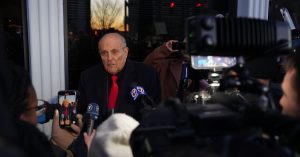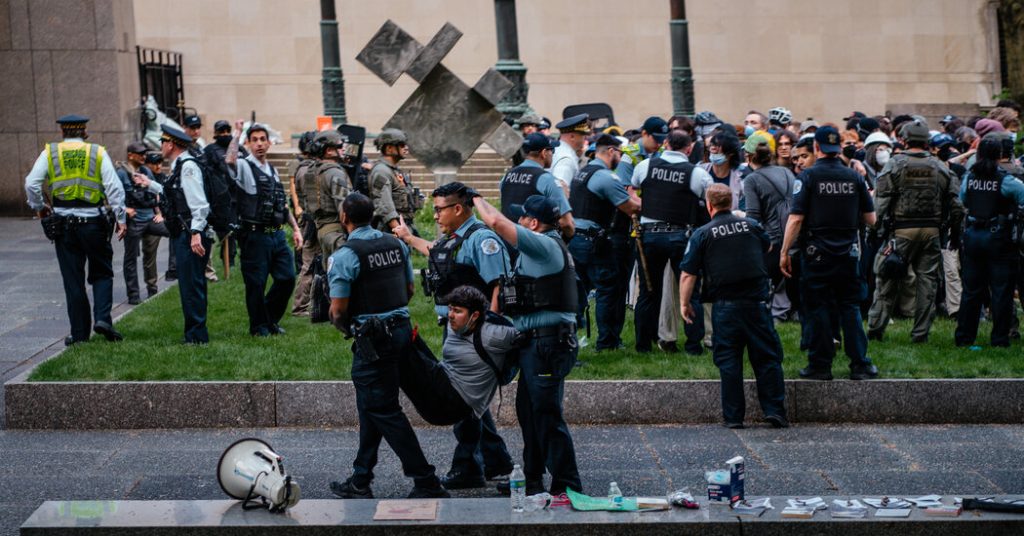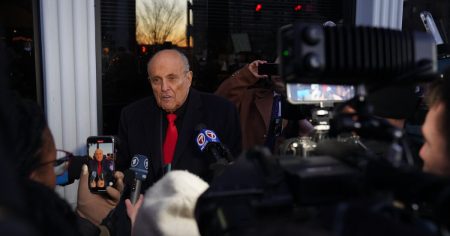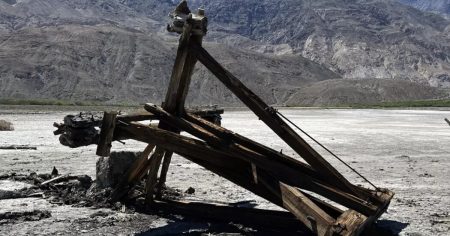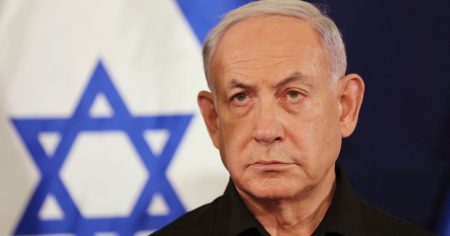On the 54th anniversary of the tragic events of May 4, 1970, when four students were killed by the National Guard at Kent State University in Ohio, hundreds of pro-Palestinian demonstrators gathered to protest the war in Gaza. The activists, many of whom were students, silently assembled in a semicircle around a stage on the campus commons where speakers were commemorating the historical events. The students killed in 1970 were Allison Krause, William Schroeder, Sandra Scheuer, and Jeffrey Miller. The campus still bears the scars of the shooting, with illuminated columns marking the spots where the students were killed, and the event was memorialized in the song “Ohio” by Crosby, Stills, Nash & Young.
Sophia Swengel, a sophomore and the president of the May 4 Task Force, acknowledged the protesters in her speech honoring the victims. Many of the demonstrators were calling on the university to divest from weapons manufacturers and military contractors, drawing parallels between the current situation in Gaza and the anti-Vietnam War protests of the 1960s. The student demands from 1970 included abolishing the R.O.T.C. program, ending ties with police training programs, and halting research on weapons technology. Today, the protesters are asking Kent State to divest its investments in instruments of war, criticizing the university for profiting from war.
During a meeting with university officials on December 4, activists including Camille Tinnin and Yaseen Shaikh discussed the university’s investment portfolio, finding investments in weapons manufacturers. Tinnin, a political science Ph.D. student, mentioned that the university cannot end the war in Gaza but can control its own investment decisions. The protesters believe that divesting from weapons manufacturers would align with the values of the university and their demands for social justice. In response to the protests, a university spokeswoman emphasized Kent State’s commitment to free speech and peaceful assembly, encouraging open dialogue and civil discourse in an inclusive environment.
The demonstrations at Kent State served as a localized expression of the broader student movements against the war in Gaza, with students across the country standing up against genocide and advocating for their beliefs. The events at Kent State on May 4, 1970, continue to resonate with students and activists today, inspiring them to take a stand against violence and injustice. By protesting the war in Gaza and calling for divestment from weapons manufacturers, the students are participating in a long tradition of student activism for peace and social change. The university’s response to the protests will influence its reputation and relationship with its student body, as it navigates the complex intersection of academic freedom, financial investments, and social responsibility.
